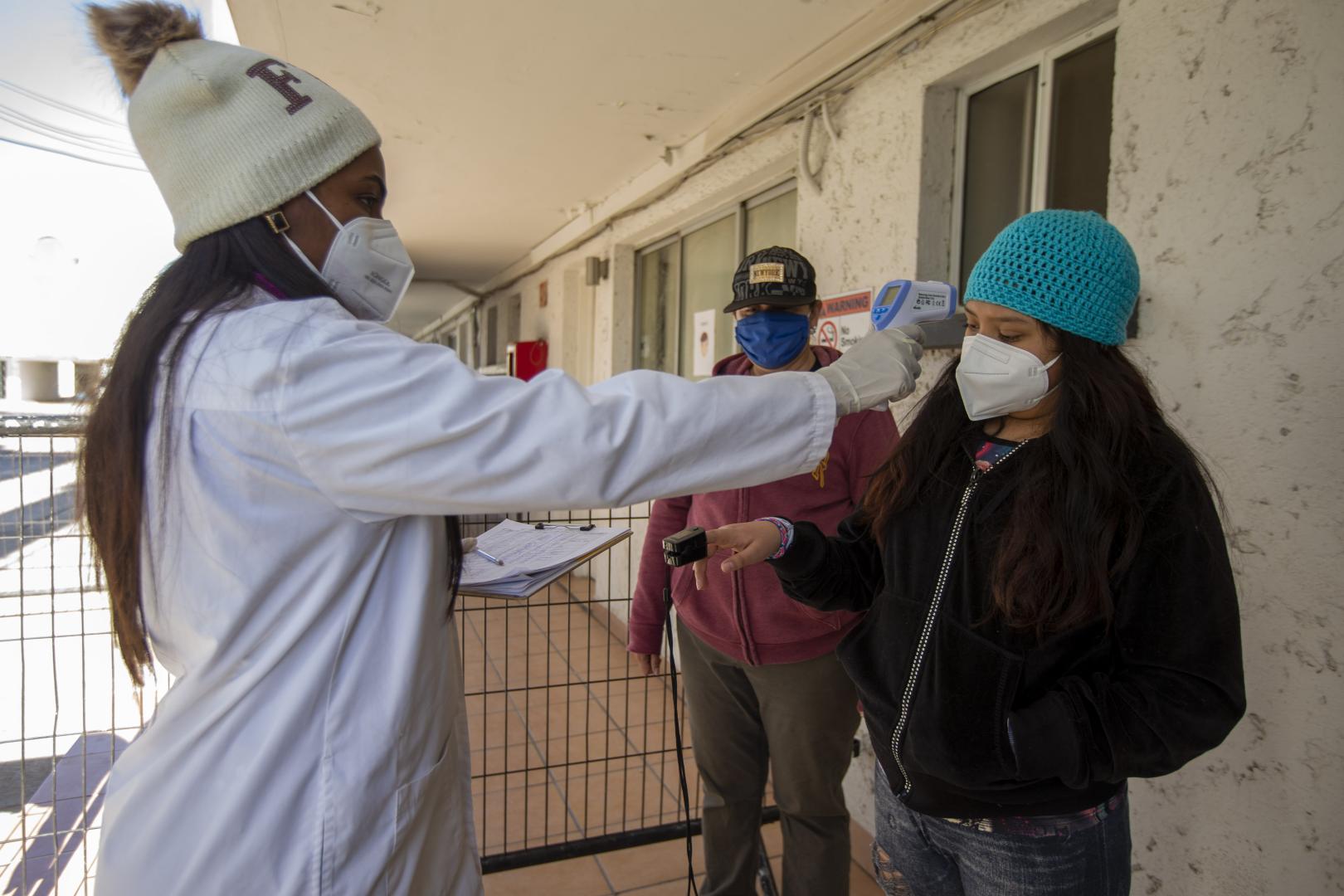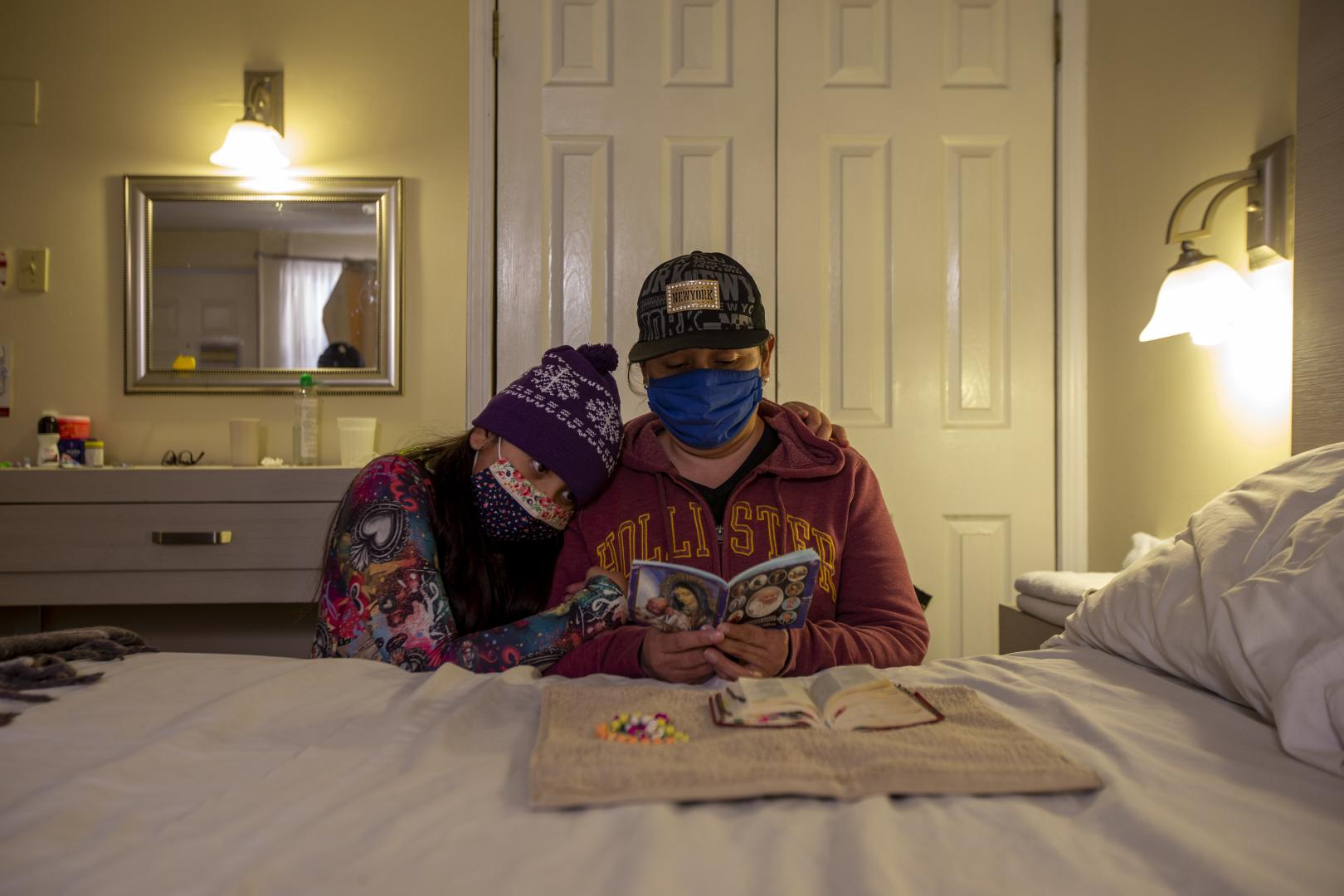When her close relative went missing, María began a search that hundreds of other Mexican women, mothers, wives, daughters, have embarked on in recent years.
She hoped to find him alive, but her efforts were cut short when she began to receive threats: clear messages pushing her to give up the search.
The hope of finding her relative alive was buried. She feared that something would happen to her or her family. María, 42, left the community where she lived, nipped her former life in the bud, and took to the road. In August 2020 she became an internally displaced person (IDP) in Mexico.
In recent years, tens of thousands of people have been forced to leave their homes in Mexico due to various causes, one of the main being violence in its different dimensions. The Government of Mexico officially recognized forced displacement in 2019 and committed to address it comprehensively.
Meantime, María’s faith has kept her going. "I lift up my eyes to You, who have your throne in the Heavens, as the slave has his eyes fixed on the hand of his master. So let us turn our eyes to the Lord, to see how long He will have mercy on us," she prays in a room in Ciudad Juarez. "Mercy, Lord, mercy, for we have had enough of humiliation. Well, well are our souls from the mockery of the proud, from the scorn of the haughty."
Her prayer is Psalm 122 from the Bible. That little book she carries and a rosary are some of the few treasured items she has held onto amid uncertainty and suffering.
The prayer she chooses and recites expresses the emotion and joy of the pilgrims at the gates of Jerusalem. She pronounces it in a border town in northern Mexico where she has arrived with her 11-year-old daughter.
The Bible and the rosary treasured by María. Photo: Christian M. Palma Montaño/IOM
She is accompanied on her journey by her sister and four nieces and nephews. The group had to separate when María and her daughter contracted COVID-19. They both stayed in a temporary shelter in the city set up by the International Organization for Migration (IOM) for several months under medical supervision.
This place of transit, also known as the "filter hotel" of Ciudad Juarez, has provided hundreds of people with shelter and assistance during the pandemic.
Newly arrived people entering the 'filter hotel'. Photo: Christian M. Palma Montaño/IOM
"It's very hard, it's very difficult. You arrive in a city you do not know, you do not know where to go, what to do… You arrive with no money in your pockets and with many needs. It is not easy to be here in this situation," María explains.
"When I was in my hometown, I heard about COVID-19 and the truth is, I didn’t think I would get it. I said to myself: 'Yes, it exists, but I don't think that one day I'll be able to get it,'" she says. And yet it did, forcing her to isolate and distancing her from her family for three months.
A medical assistant taking the temperature to María's daughter in front of her room at the "filter hotel". Photo: Christian M. Palma Montaño/IOM
"Sometimes human beings are like that. We think that it's never going to give and that we're never going to get anything, that you're never going to get it...". Another lesson of humility, another lesson of life, another test from God for María.
She was about to leave the hotel when she spoke to IOM. The disease kept her quarantined several months: she was the first one affected by the virus, then her daughter. They spent their days under medical supervision, with their basic needs covered, but missing their loved ones.
"We are finally going to meet my sister and nephews, and surprise them in Ciudad Juárez,” says María. María is also looking forward to being reunited with two of her children who live far away.
Her youngest is 14-years-old and is having a hard time. He lives with an uncle. She knows he goes to school, and it weighs on her that she is not around when he is in trouble. Being with her daughter comforts María.
Together they pray daily. Faith is their treasure: "For me (what helped me the most during this time in my life) was spirituality, having God close to me, focusing a lot on that, on prayer, on asking God to heal me, to heal me, yes. For me, spirituality is very important," she explains.
Praying inside the 'filter hotel' room. Photo: Christian M. Palma Montaño/IOM
Other people who have come from far away are in Ciudad Juarez, at the temporary accommodation facility. María knows that they left their homes for various reasons. Each one carries his or her own story and project for change. She asks them not to move from where they are.
"It doesn't make sense for them to come because everything has come to a stop. The same challenges that you are going to go through there, at home, you will go through here. But I also think that sometimes when they are looking for you, you have no other option," she adds.
Last moments before leaving the facility where they survived the pandemic. Photo: Christian M. Palma Montaño/IOM
In María’s and her daughter's backpack is her rosary, her Bible, a book of prayers, and a few essential belongings she carries with her. She climbs into the van that will take her to a government shelter in Ciudad Juarez where she will be reunited with her cousin and nephews.
Maria's daughter with paint in her hands. Photo: Christian M. Palma Montaño/IOM
Before leaving, her daughter performs a ritual at the hotel: she dips her hands in colored paint and puts them on a map of Mexico. It is her way of leaving a trace of her passage through the "filter hotel", as other children and adolescents did before her departure day.
At her side, María shares the life lesson she carries in her heart: "That if God got me out of this situation, He can get me out of anything, and that you always must have a lot of courage and by not saying ‘no, it can never happen to me’. Anything can happen to us all in life."
Good journey, María, wherever you are, wherever you go.




